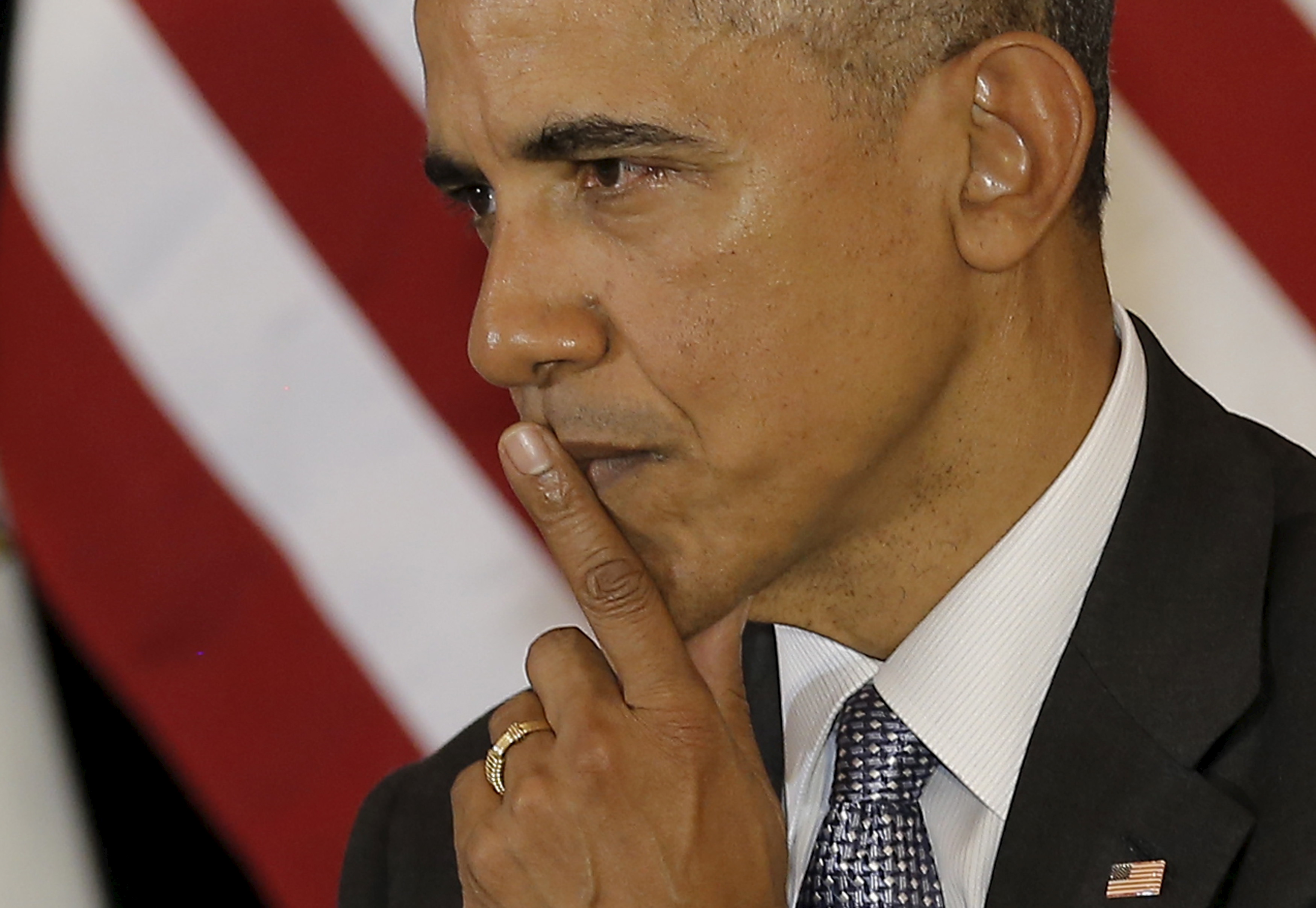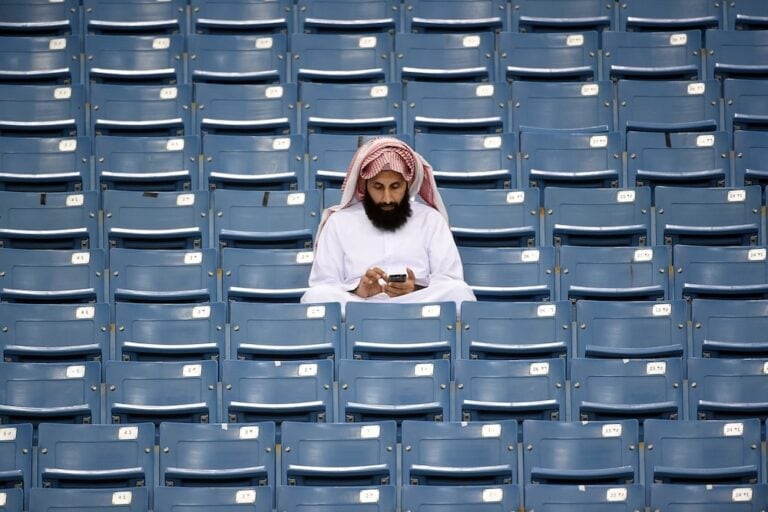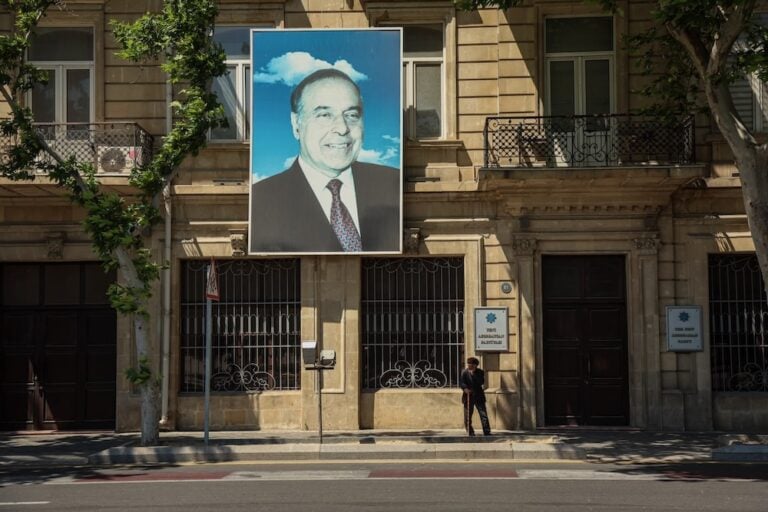Eleven regional and international civil society groups have penned a letter to U.S. President Barack Obama urging him to press for the release of all detained rights defenders across the Gulf region who are imprisoned solely due to their peaceful and legitimate human rights work.
The following is an open letter signed by 11 international NGOs addressed to US President Barack Obama to help free jailed human rights defenders in the Gulf prior to the Gulf Cooperation Council (GCC) being held in Saudi Arabia on 21 April 2016.
President Barack Obama
The White House
1600 Pennsylvania Avenue NW
Washington, DC 20500
United States
7 April 2016
Dear President Obama,
As you prepare to meet with leaders of the Gulf Cooperation Council (GCC) on 21 April, we the undersigned organisations urge you to press for the release of all detained human rights defenders across the Gulf region who are imprisoned solely due to their peaceful and legitimate human rights work.
Instead of working with human rights defenders to combat extremism and build tolerant societies, authorities in the GCC countries have jailed dozens of them, in some cases for life, simply for exercising their right and duty to promote and protect human rights via freedoms of expression, association and peaceful assembly. Numerous other defenders fear reprisals for cooperating with the United Nations or travelling to meet and discuss with fellow defenders. Since the summit meeting with leaders of the GCC in May 2015, human rights defenders have continued to suffer from judicial harassment and repression.
For example, the host country Saudi Arabia systematically targets human rights defenders, including the Saudi Civil and Political Rights Association (ACPRA) and the Monitor of Human Rights in Saudi Arabia (MHRSA). Blogger Raif Badawi, winner of the 2015 Sakharov Prize for Freedom of Thought, is serving a 10-year prison term and was flogged in January 2015 after being sentenced to 1,000 lashes the year before. His flogging was not resumed thanks to an international outcry but he remains unjustly imprisoned. Prominent lawyer Waleed Abu Al-Khair, founder of MHRSA, was sentenced to 15 years in prison by the Specialised Criminal Court (SCC). Also in 2015, the SCC in Riyadh sentenced ACPRA founding members to prison sentences of up to ten years, including Mohammed Al-Bajadi, Dr. Abdulrahman Al-Hamid, and Dr. Abdulkarim Al-Khoder. Other ACPRA members remain in prison, including co-founders Dr. Mohammad Fahad Al-Qahtani and Dr. Abdullah Al-Hamid.
Bahrain’s rulers have also ruthlessly cracked down on well-known human rights defenders, who are either in prison, face prison sentences, subject to travel bans, or are in exile. They include Zainab Al-Khawaja, jailed in March 2016 pending trial. She could serve over three years in prison on free expression charges. Her father, Abdulhadi Al-Khawaja, co-founder of the Bahrain Center for Human Rights (BCHR) and the Gulf Centre for Human Rights (GCHR), was sentenced to life in prison for his role in democracy protests in 2011, along with blogger Dr. Abduljalil Al-Singace. Mr. President, you had called for their release in 2011, but they remain in jail. Naji Fateel of the Bahrain Youth Society for Human Rights was jailed in 2013 for 15 years for his participation in demonstrations. Nabeel Rajab, BCHR President, founding director of the GCHR and FIDH Deputy Secretary-General, faces up to ten years in prison for tweeting condemnation of the bombing of civilians in Yemen, and for reporting on torture of prisoners in Jaw prison. He spent four months in prison last year on freedom of expression charges and is under a travel ban. Women’s rights activist Ghada Jamsheer is facing combined sentences of 10 months in prison for tweeting about corruption at King Hamad hospital. As you noted in May 2011, Mr. President, “mass arrests and brute force are at odds with the universal rights of Bahrain’s citizens…. The only way forward is for the government and opposition to engage in a dialogue, and you can’t have a real dialogue when parts of the peaceful opposition are in jail.”
In the United Arab Emirates (UAE), the space for dissent has vanished following the introduction of the Cyber-Crime Law in 2012 and Anti-Terrorism legislation in 2014. The most prominent Emirati human rights defenders are among dozens of peaceful government critics and reform activists jailed for up to 15 years in 2013, including lawyers Dr Mohammed Al-Roken and Dr. Mohammed Al-Mansoori. Netizen Osama Al-Najjar is serving a three-year prison sentence for allegedly instigating hatred against the state and spreading lies after he spoke out about the torture of his father, Hossain Al-Najjar. The whereabouts of Dr. Nasser Bin Ghaith, previously jailed in 2011, remain unknown since his enforced disappearance in August 2015.
In Kuwait, a new Cyber-Crime Law was passed into law recently which will further curtail freedom of expression. In June 2015, Rana Al-Sadoun, co-founder of the National Committee for Monitoring Violations (NCV), was sentenced in absentia to three years in prison with hard labour simply for exercising her right to free expression by repeating a speech of a jailed politician.
In Oman, the Internal Security Service (ISS) escalated its targeting of human rights activists this past year. Prominent defender Saeed Jadad was continuously harassed by authorities and remains detained since 25 November 2015. Mohammad Al-Fazari, a well-known blogger, was able to flee the country to the UK on 17 July 2015, despite having been placed under house arrest and a travel ban since December 2014. He is the founder and editor of the e-magazine Mowaten (Citizen), which published articles on corruption in government departments, including the Public Prosecution Office. Authorities forced Mowaten to stop publishing in January 2016.
Although the Qatari constitution provides for the right to freedom of association, in practice government bans on any form of dissent have led to a distinct absence of human rights groups and unions. This lack of independent civil society space renders it all but impossible to independently monitor and report on human rights violations in the country.
Some GCC countries like Saudi Arabia prosecute human rights defenders in courts designed for terrorists, and routinely treat them worse than criminals. GCC efforts to suppress human rights activists appears stronger than efforts to target people who pose a real threat of violence.
We the undersigned organisations reiterate our concern about the ongoing jailing and targeting of human rights defenders in the GCC countries and ask you, Mr. President, to live up to your promises made in 2011 to support popular movements for reform across the region, as well as to call on the authorities to:
- Release human rights defenders in Bahrain, including Zainab and Abdulhadi Al-Khawaja, Dr. Abduljalil Al-Singace and Naji Fateel, and ensure their protection from any harassment, torture, and persecution in relation to their peaceful human rights activities;
- Release all human rights defenders jailed in Saudi Arabia, including Raif Badawi, Walid Abu Al-Khair and members of the ACPRA;
- Release all human rights defenders jailed in the UAE, including Dr. Mohammed Al-Roken and Dr. Mohammed Al-Mansoori; netizen Osama Al-Najjar; and Dr. Nasser Bin Ghaith;
- Free human rights defender Saeed Jadad in Oman, and protect freedom of expression and press freedom, for example by ending the persecution of Mowaten; and
- Allow human rights organisations to function freely and play a role in civil society in all Gulf countries.
Yours sincerely,
Association for Women’s Rights in Development (AWID)
Cairo Institute for Human Rights Studies (CIHRS)
CIVICUS: World Alliance for Citizen Participation
FIDH, within the framework of the Observatory for the Protection of Human Rights Defenders
Front Line Defenders
Gulf Centre for Human Rights (GCHR)
Human Rights First
International Service for Human Rights (ISHR)
Nazra for Feminist Studies
Reporters Without Borders (RSF)
World Organisation Against Torture (OMCT), within the framework of the Observatory for the Protection of
Human Rights Defenders

U.S. President Barack Obama will be meeting with leaders of the GCC on 21 April REUTERS/Jim Young


